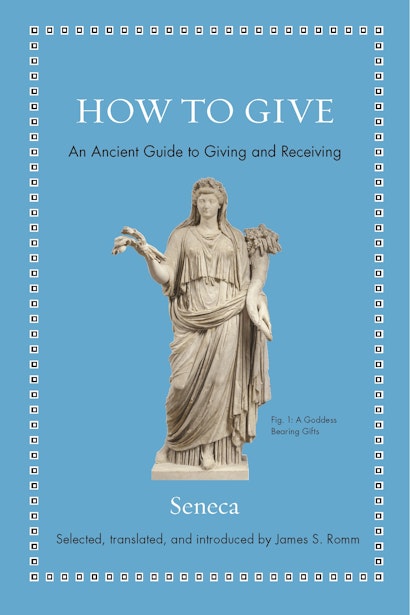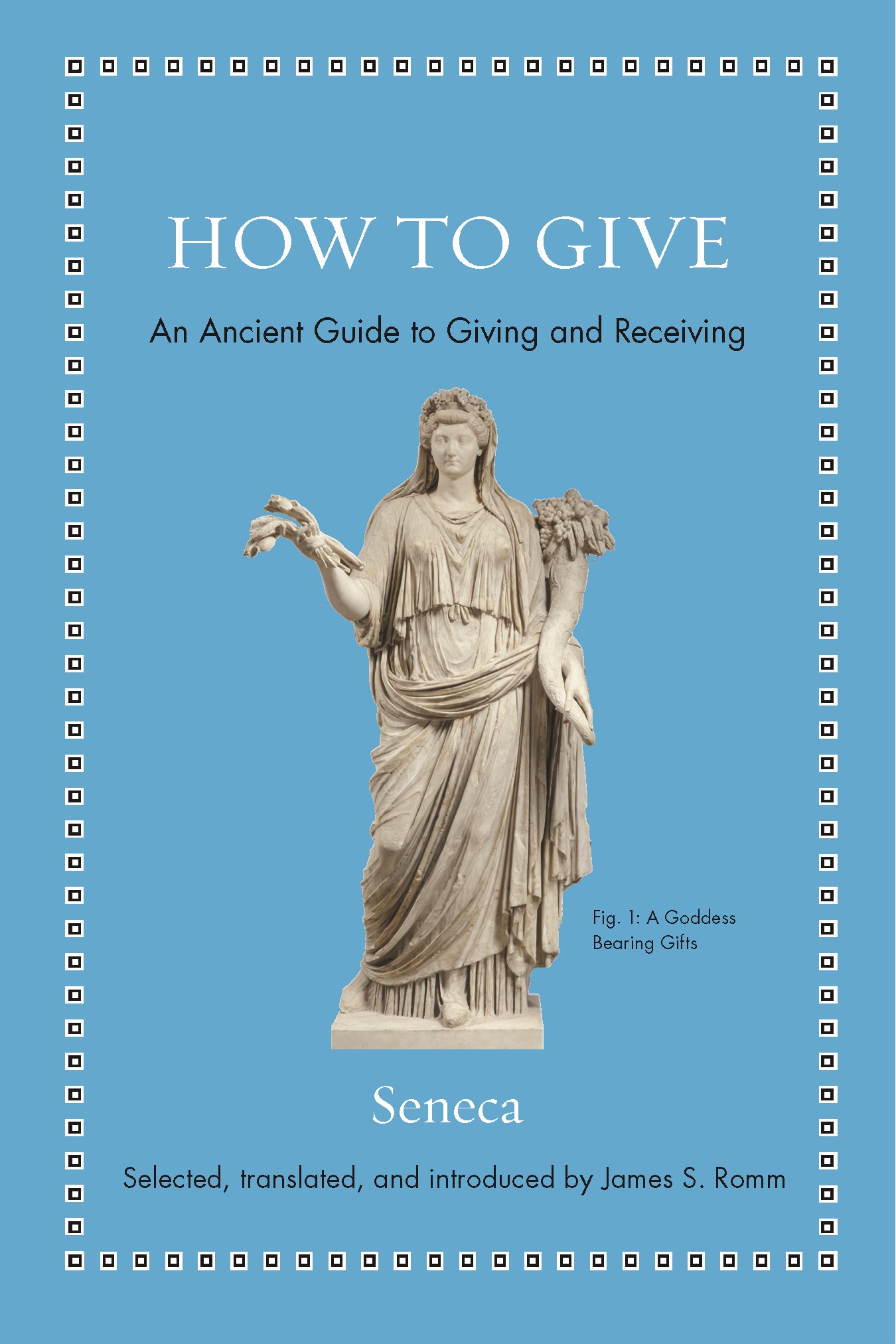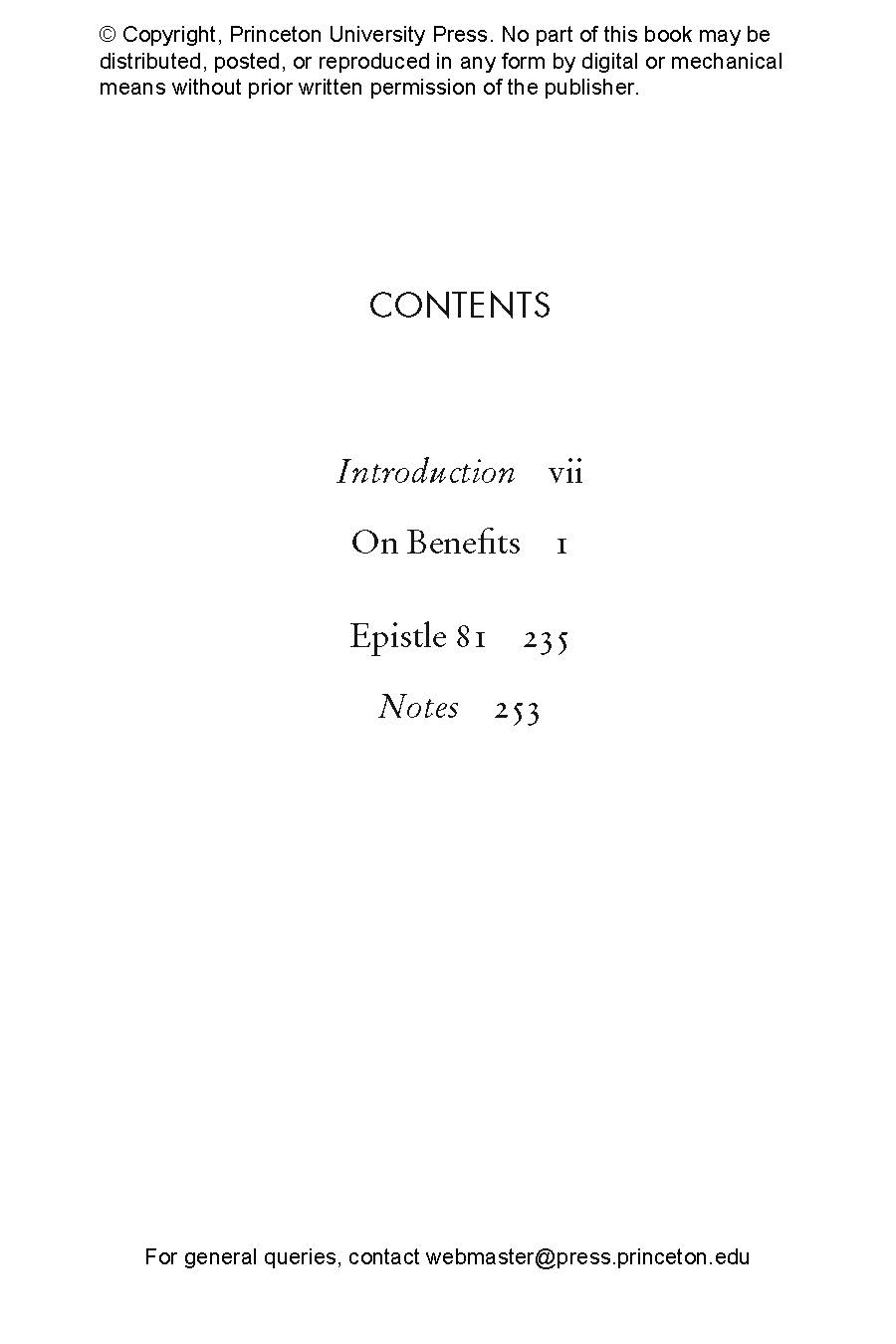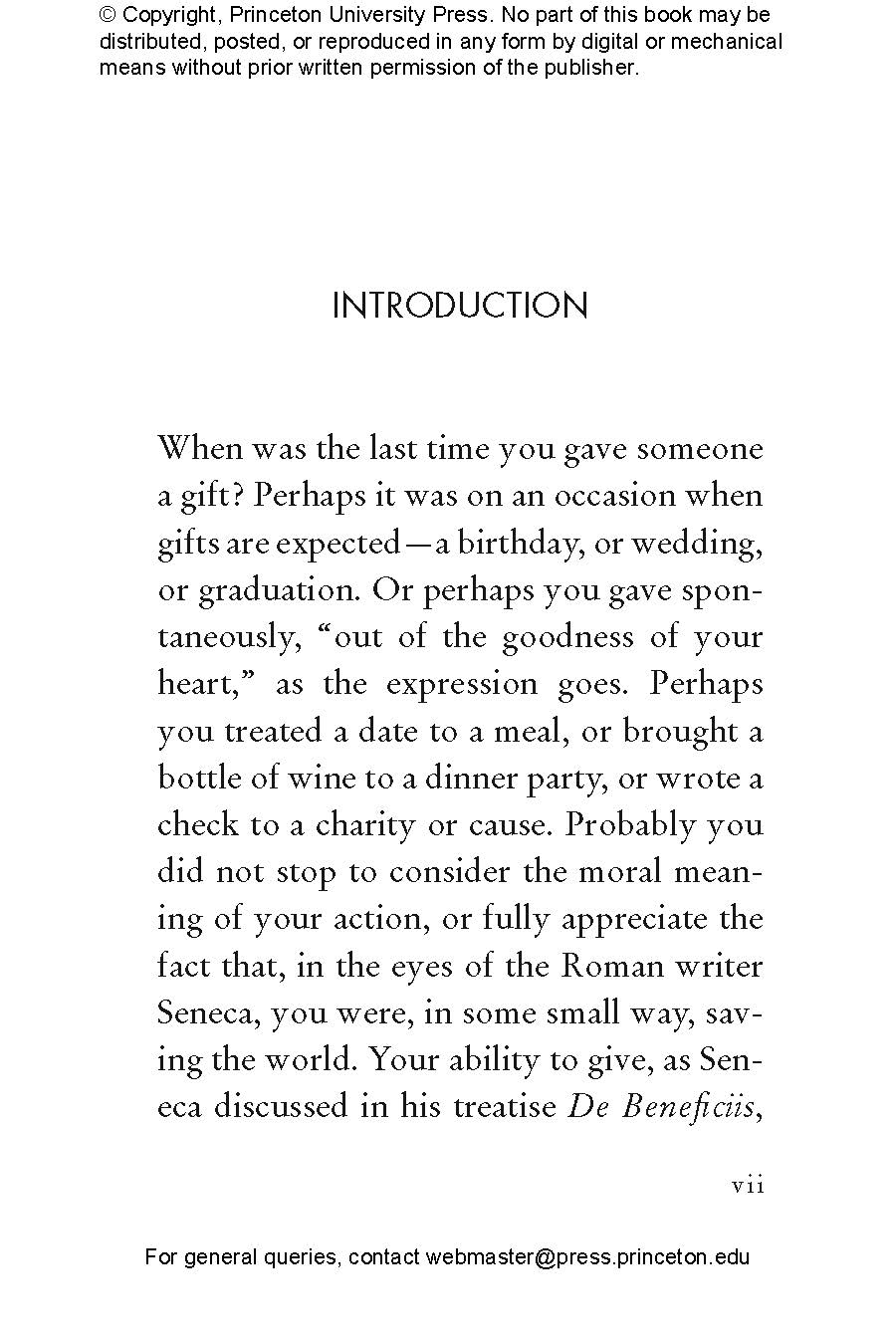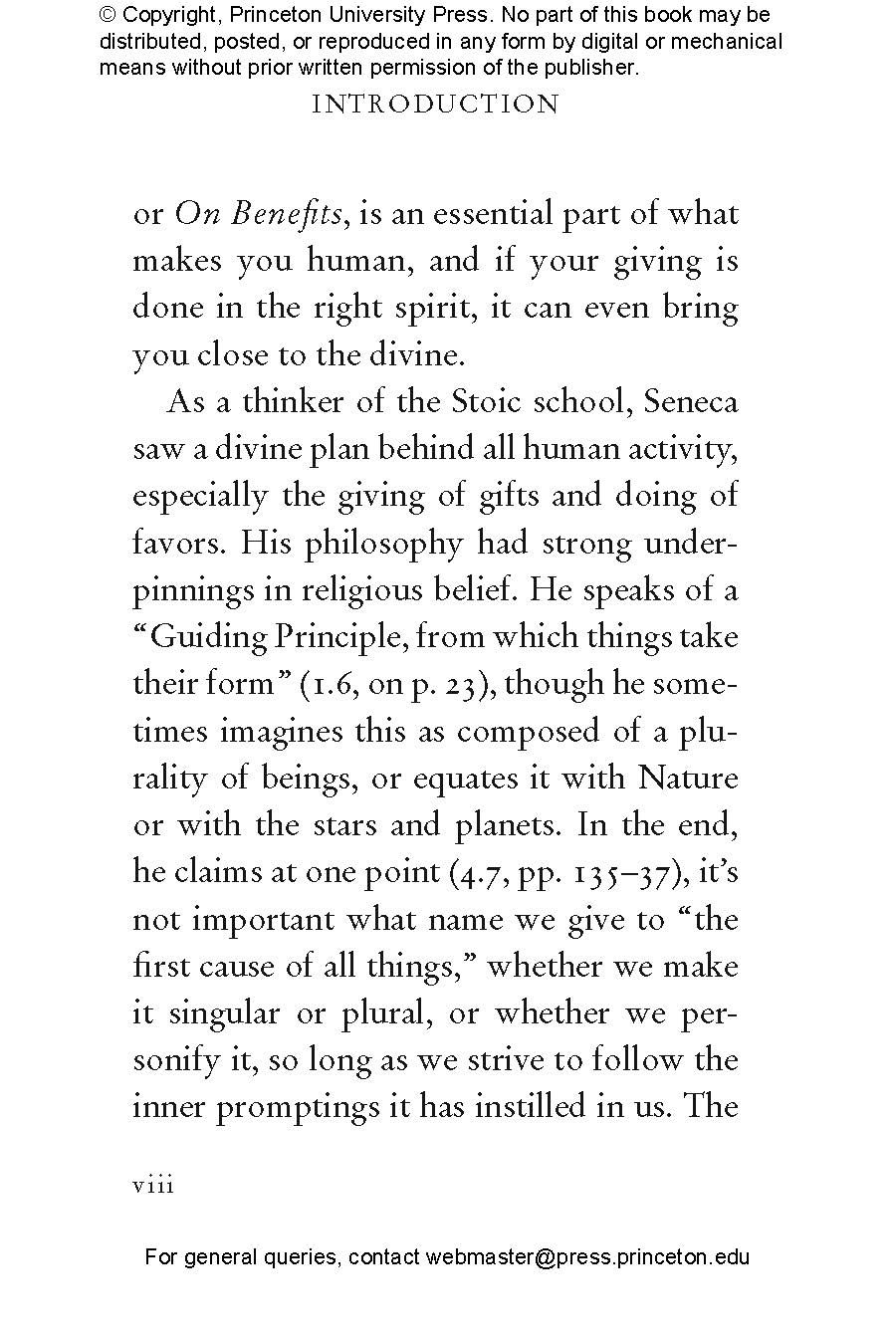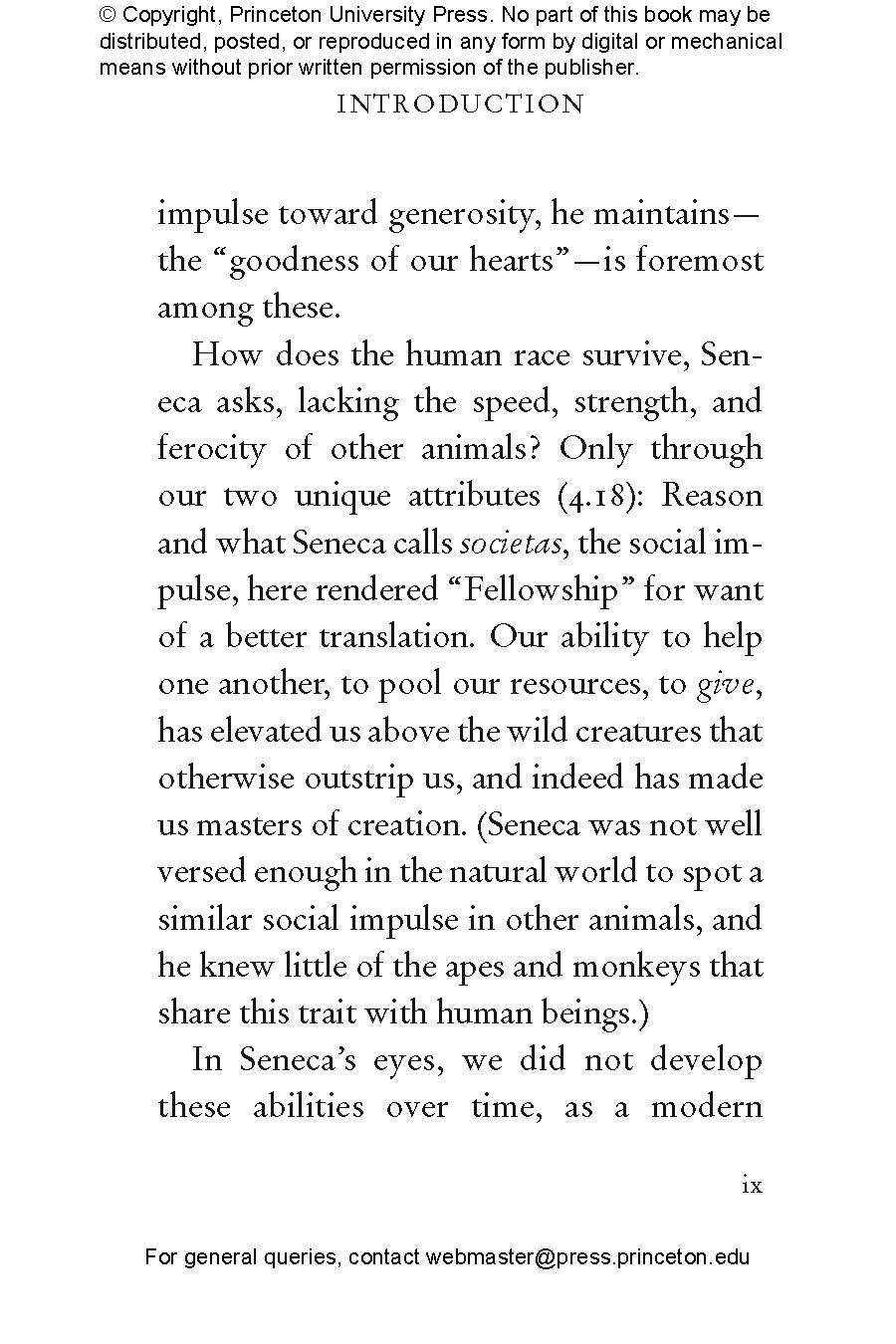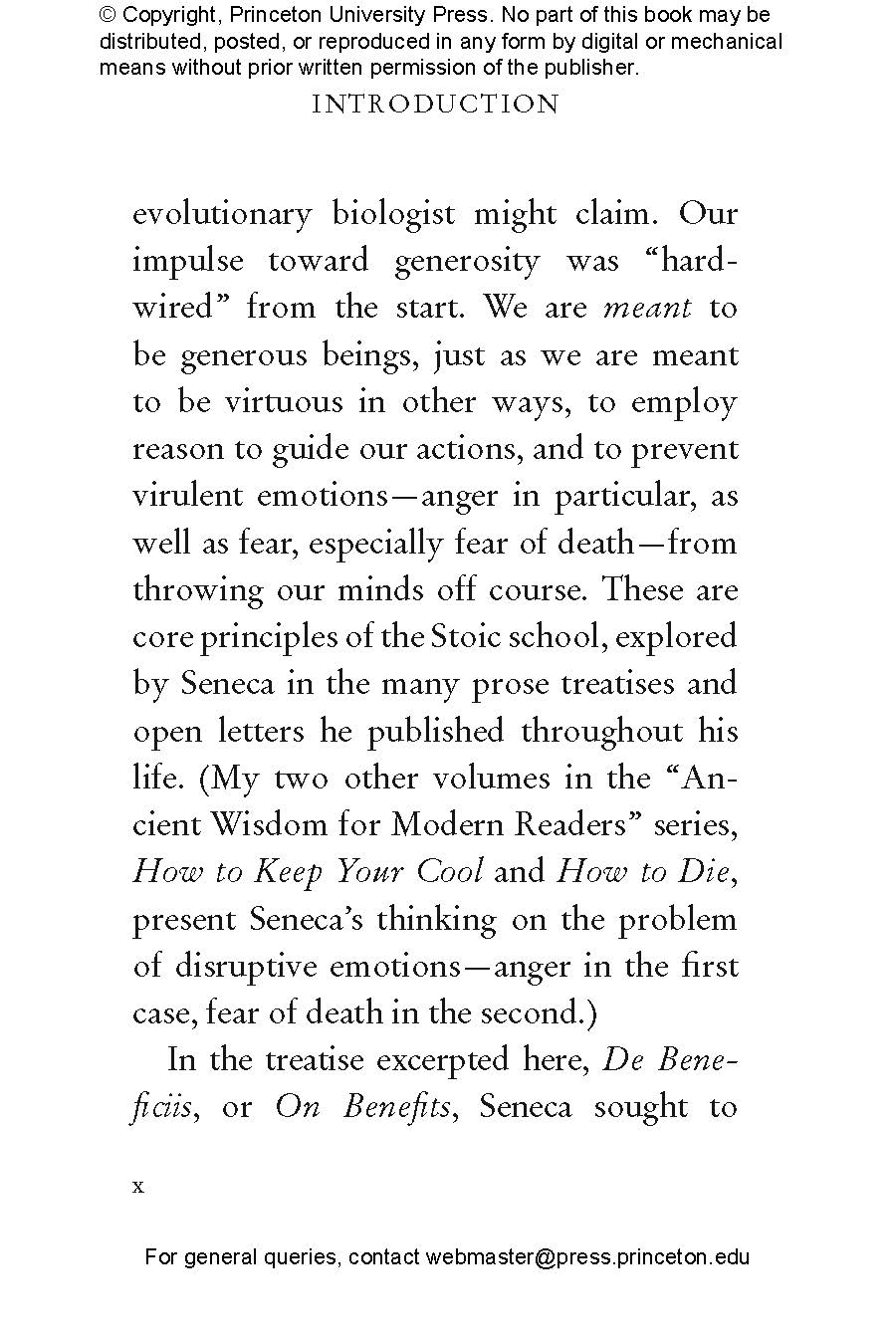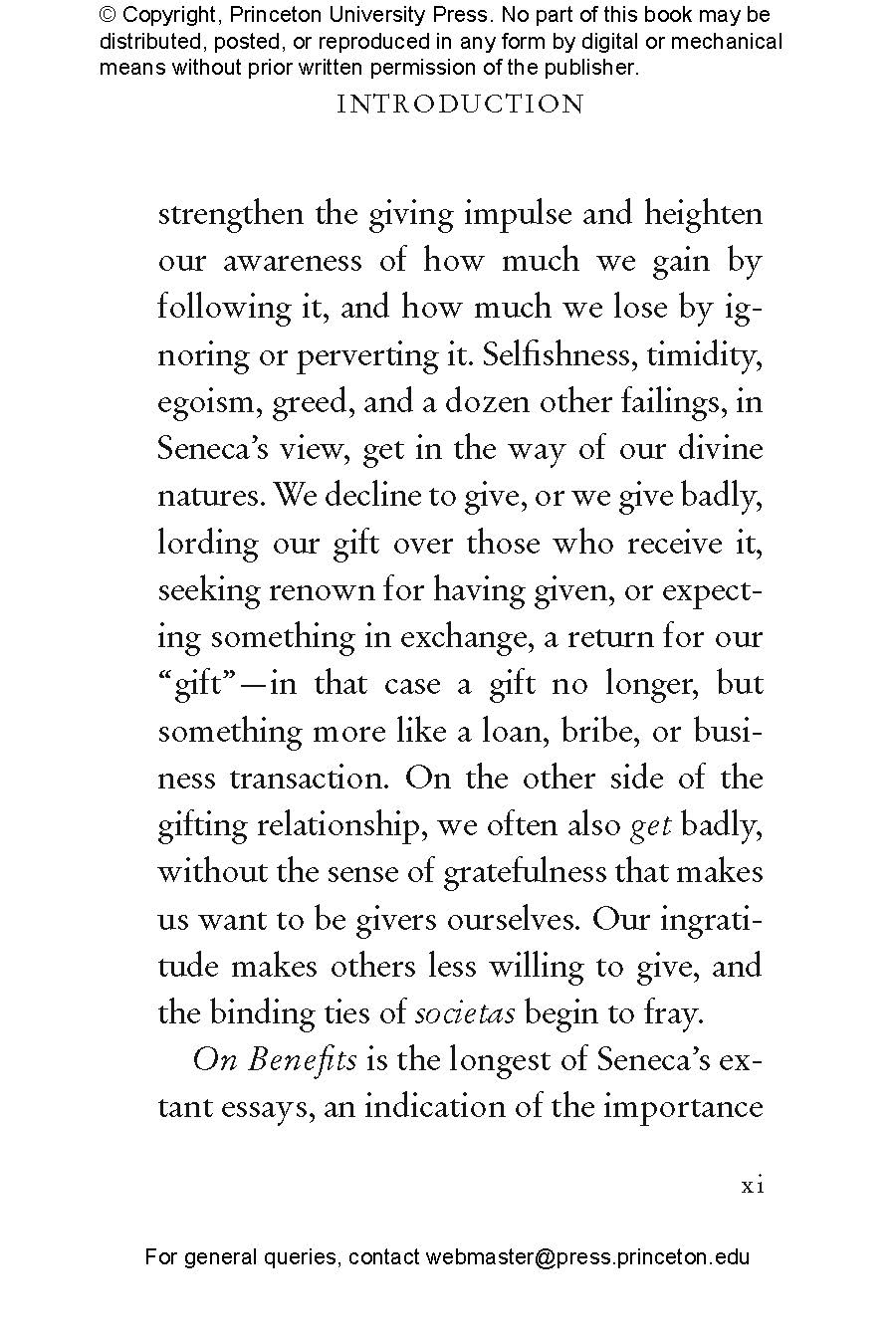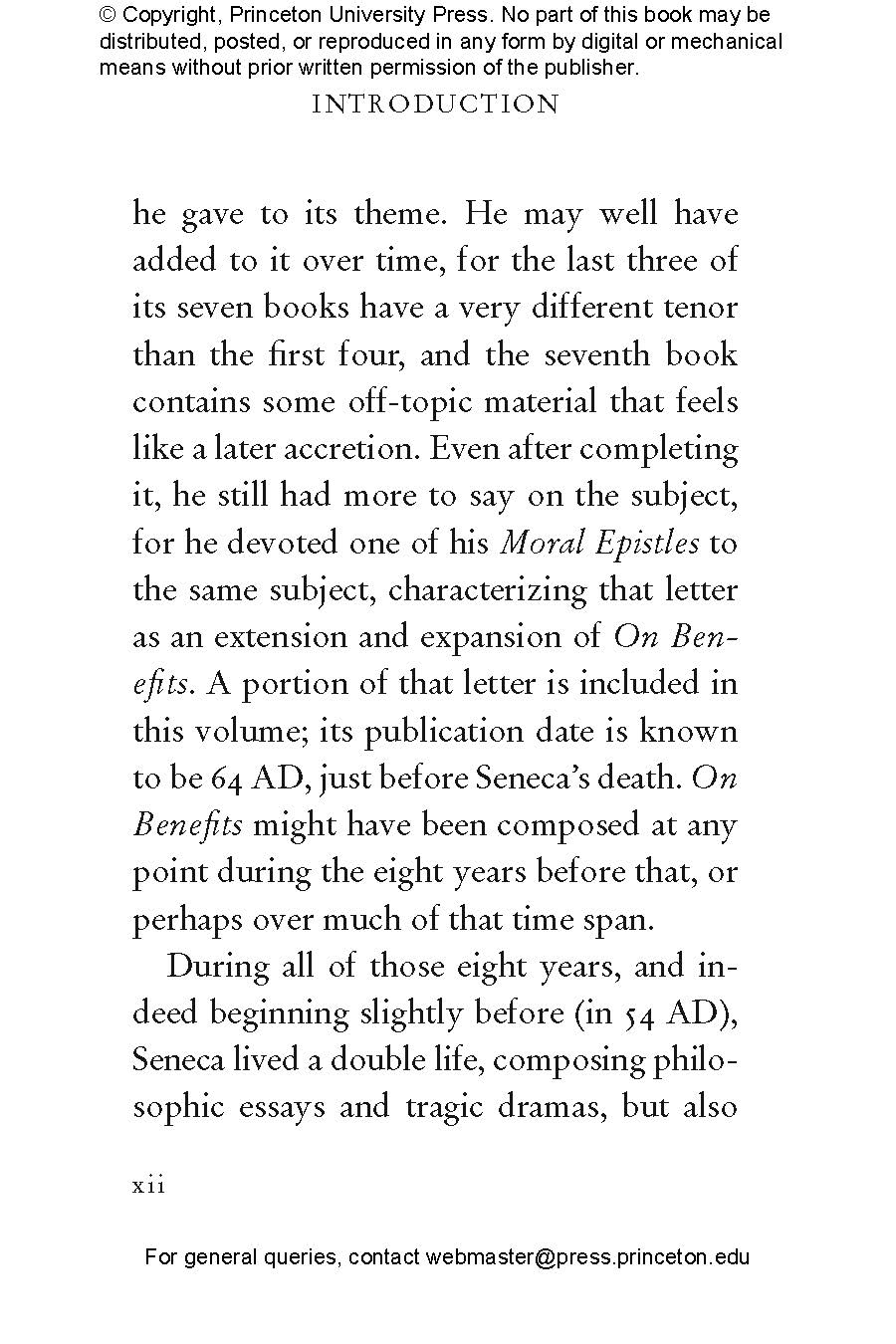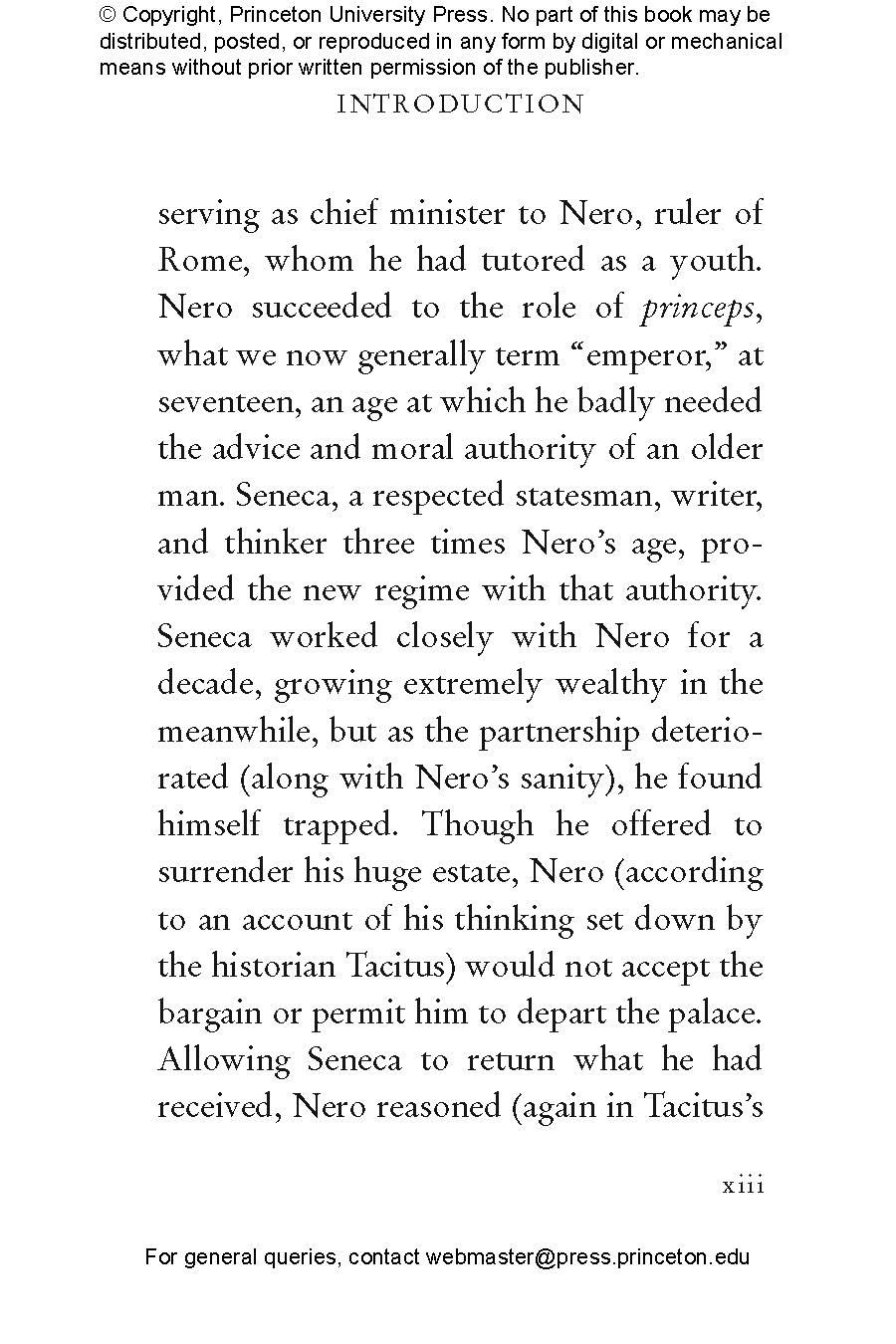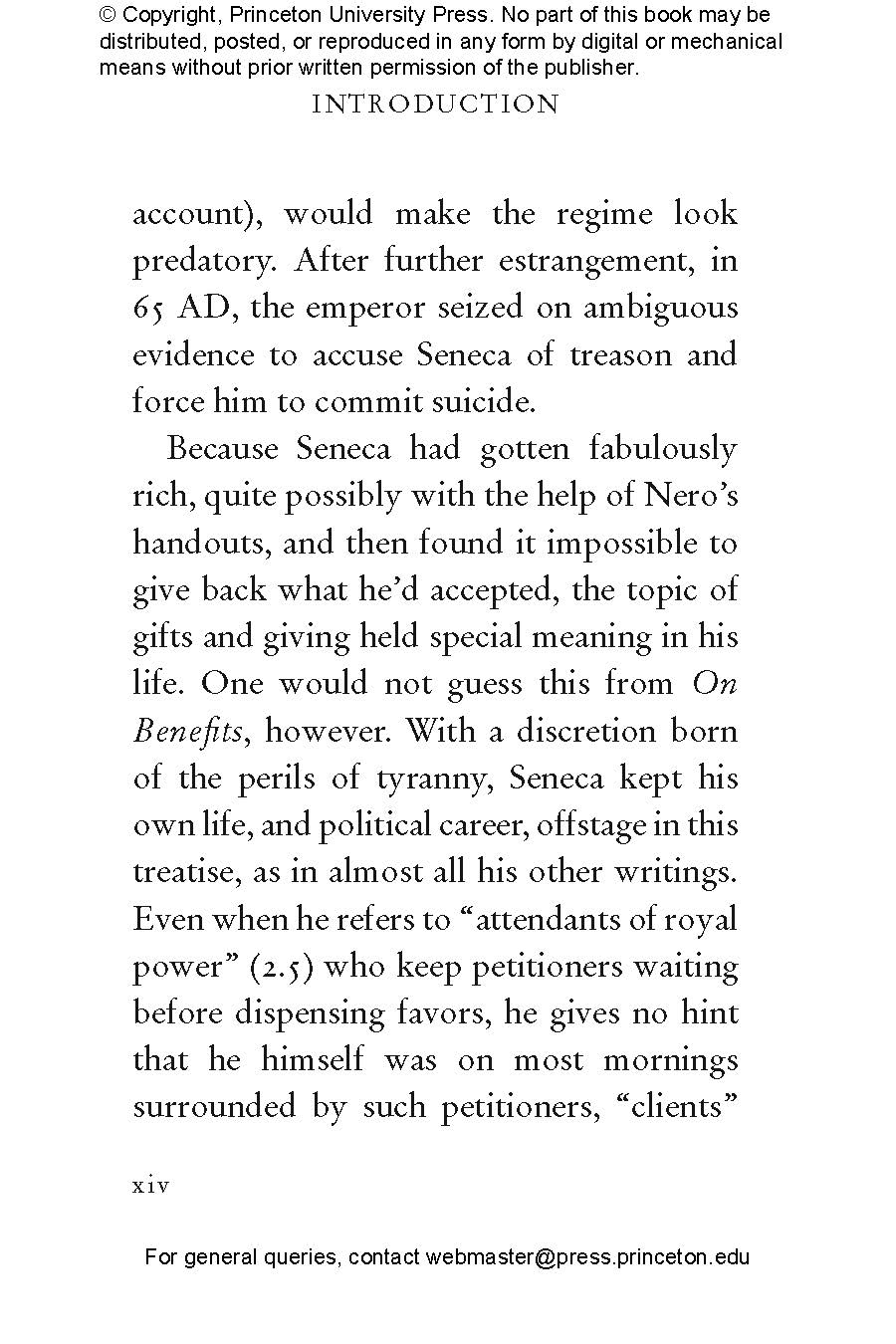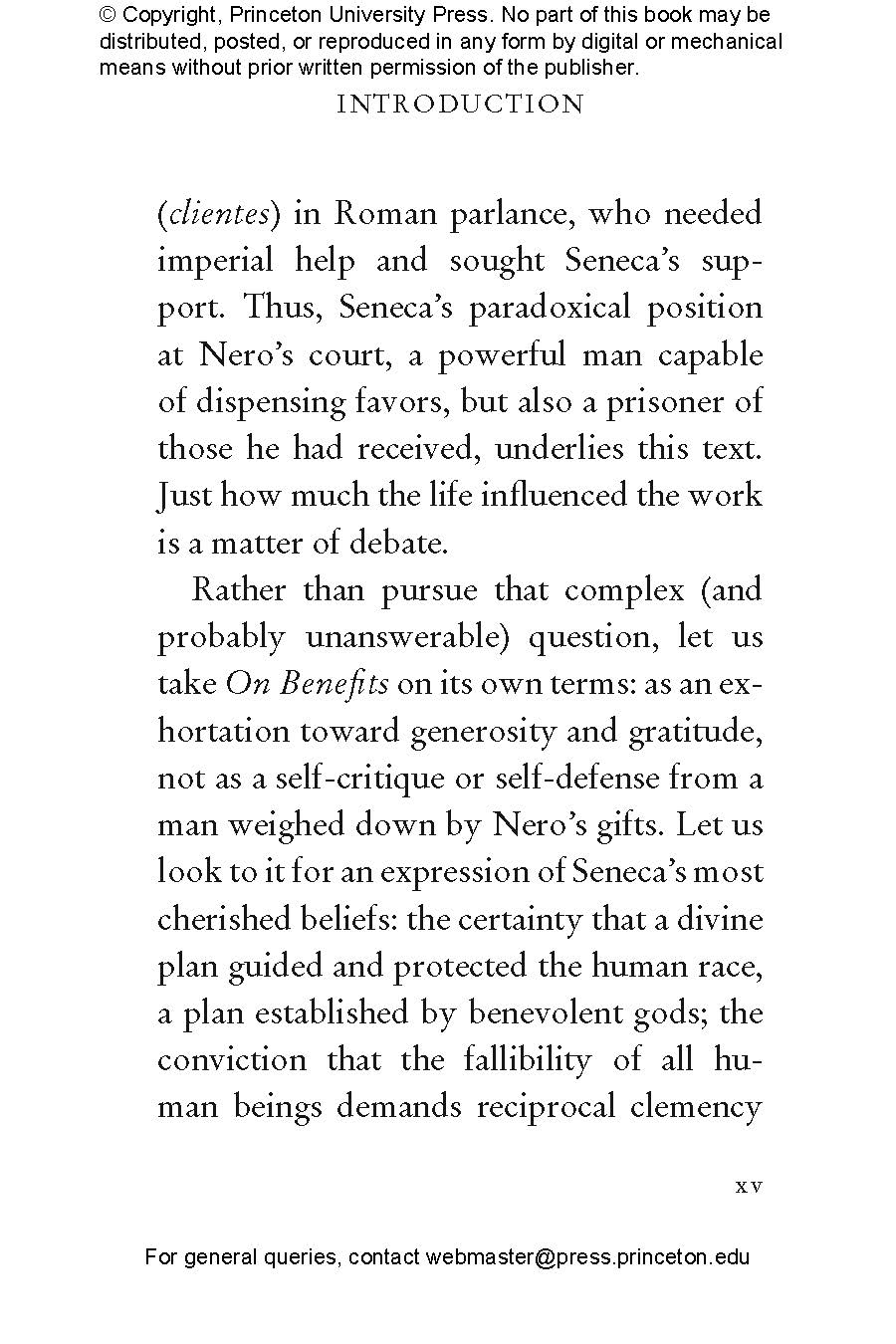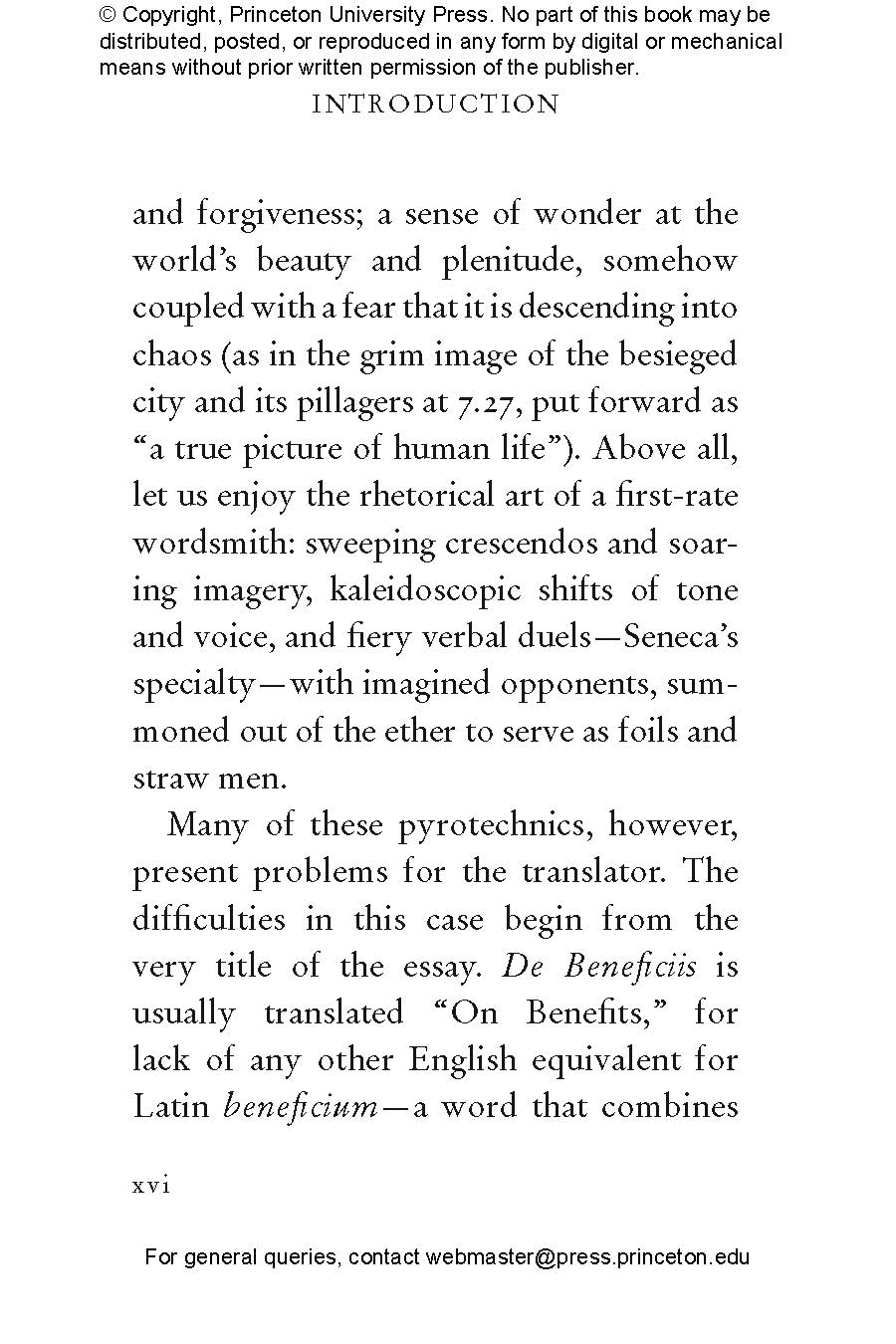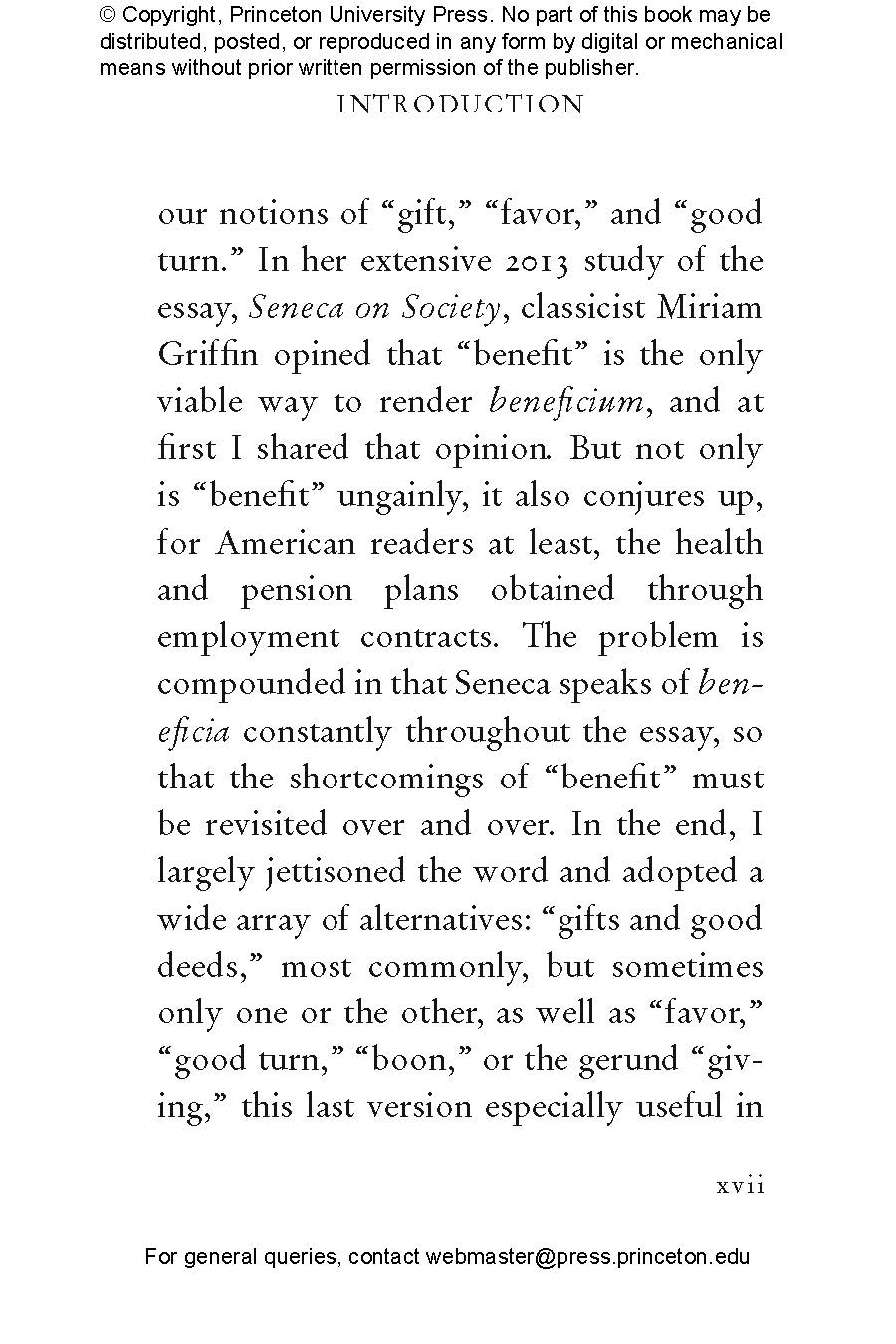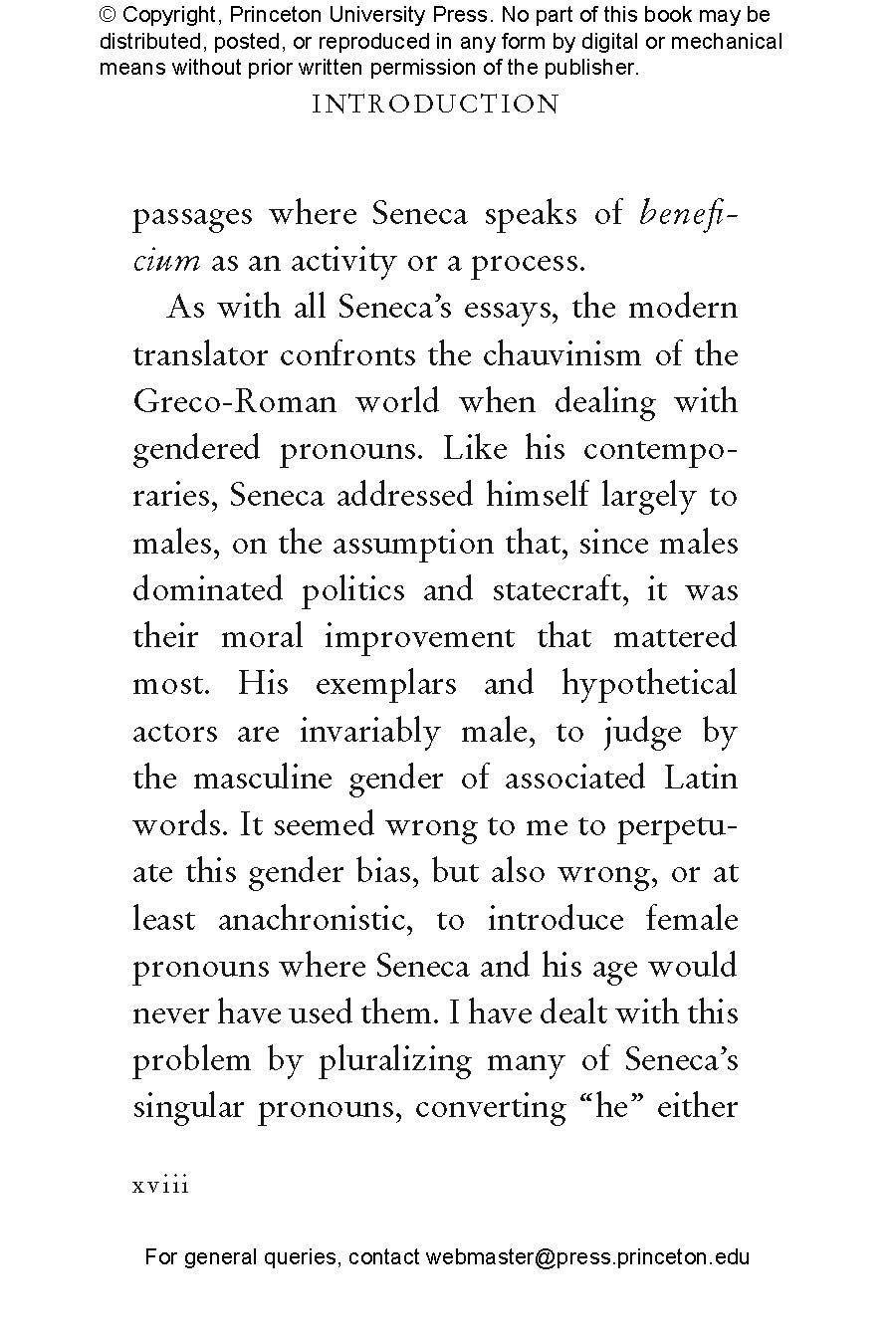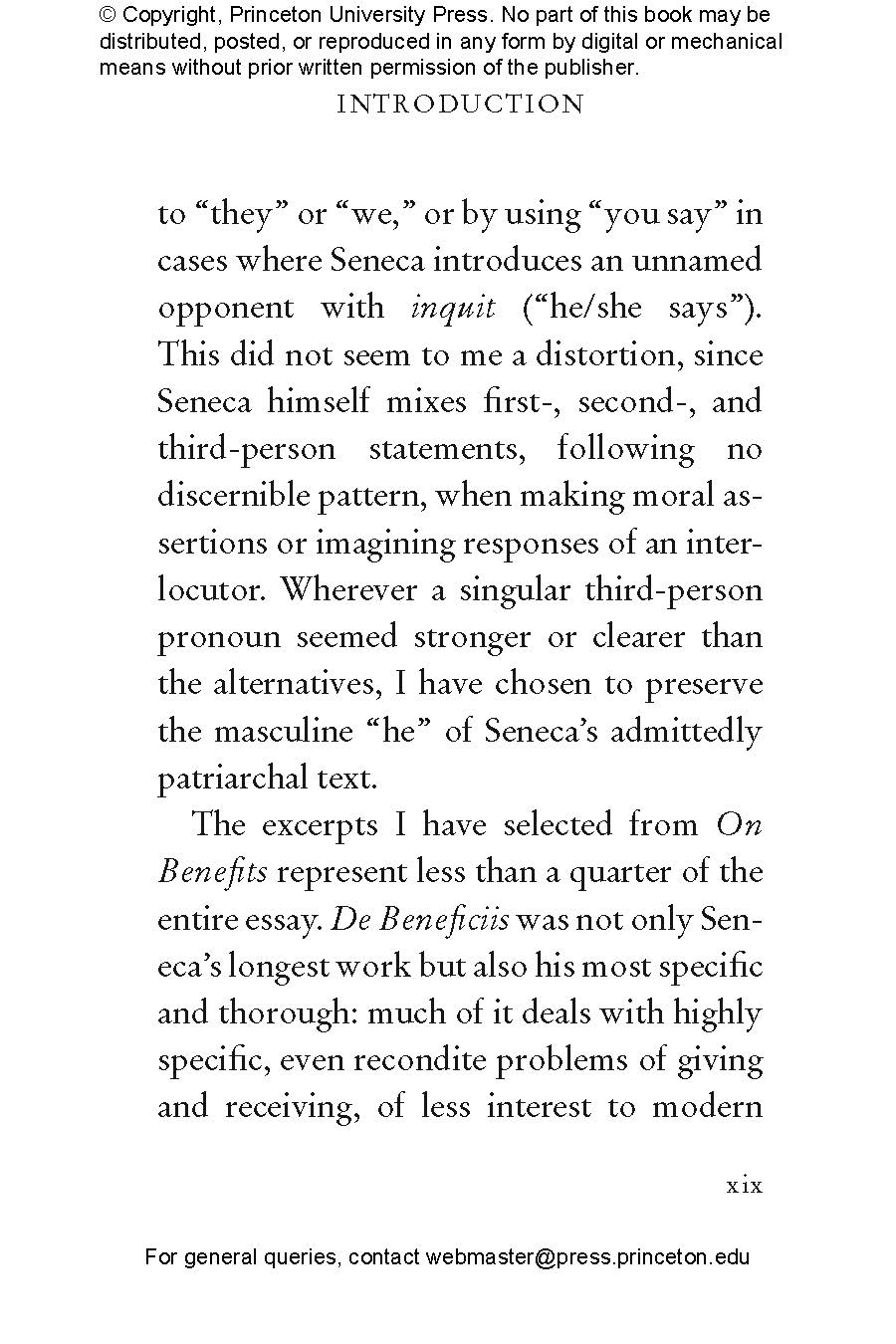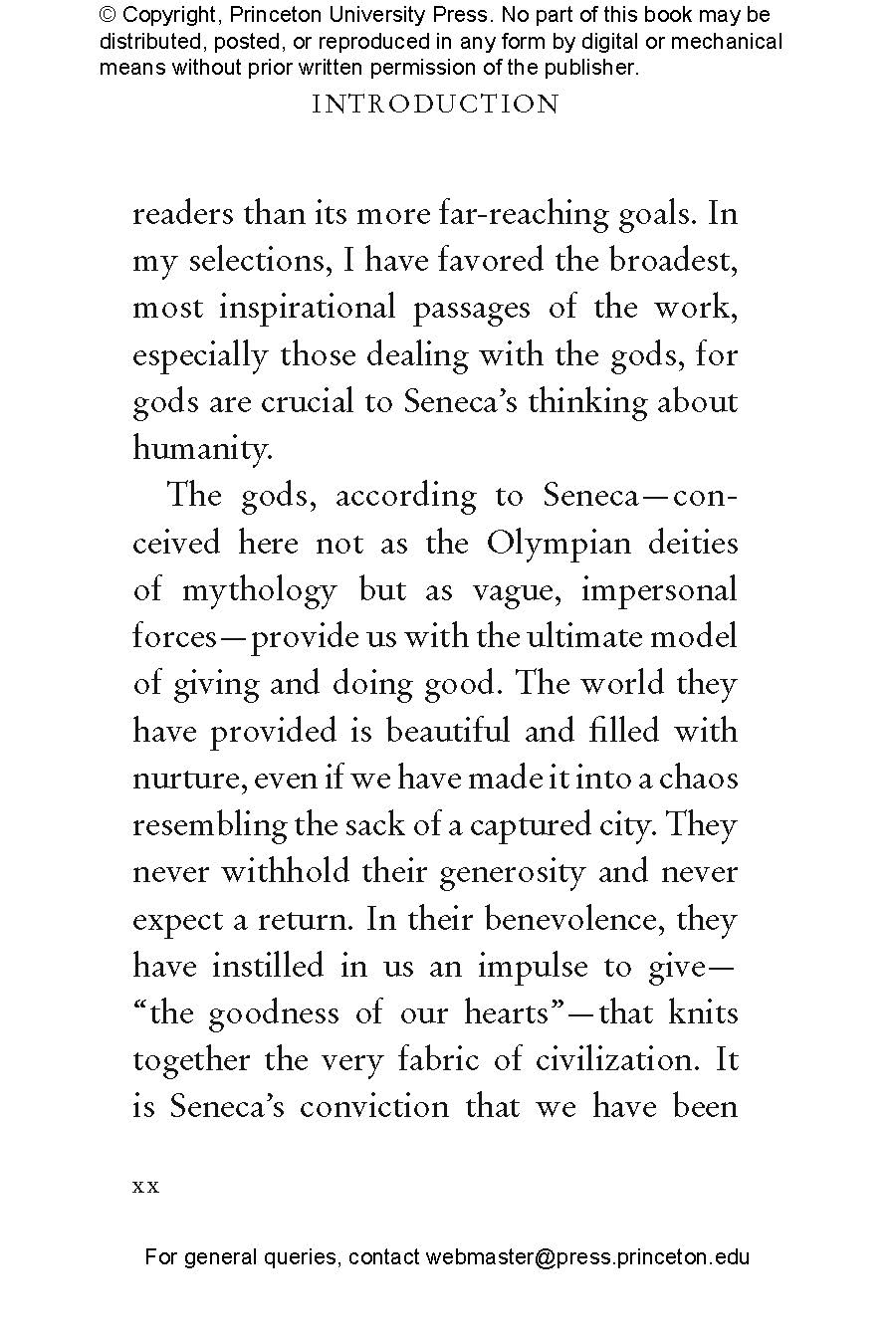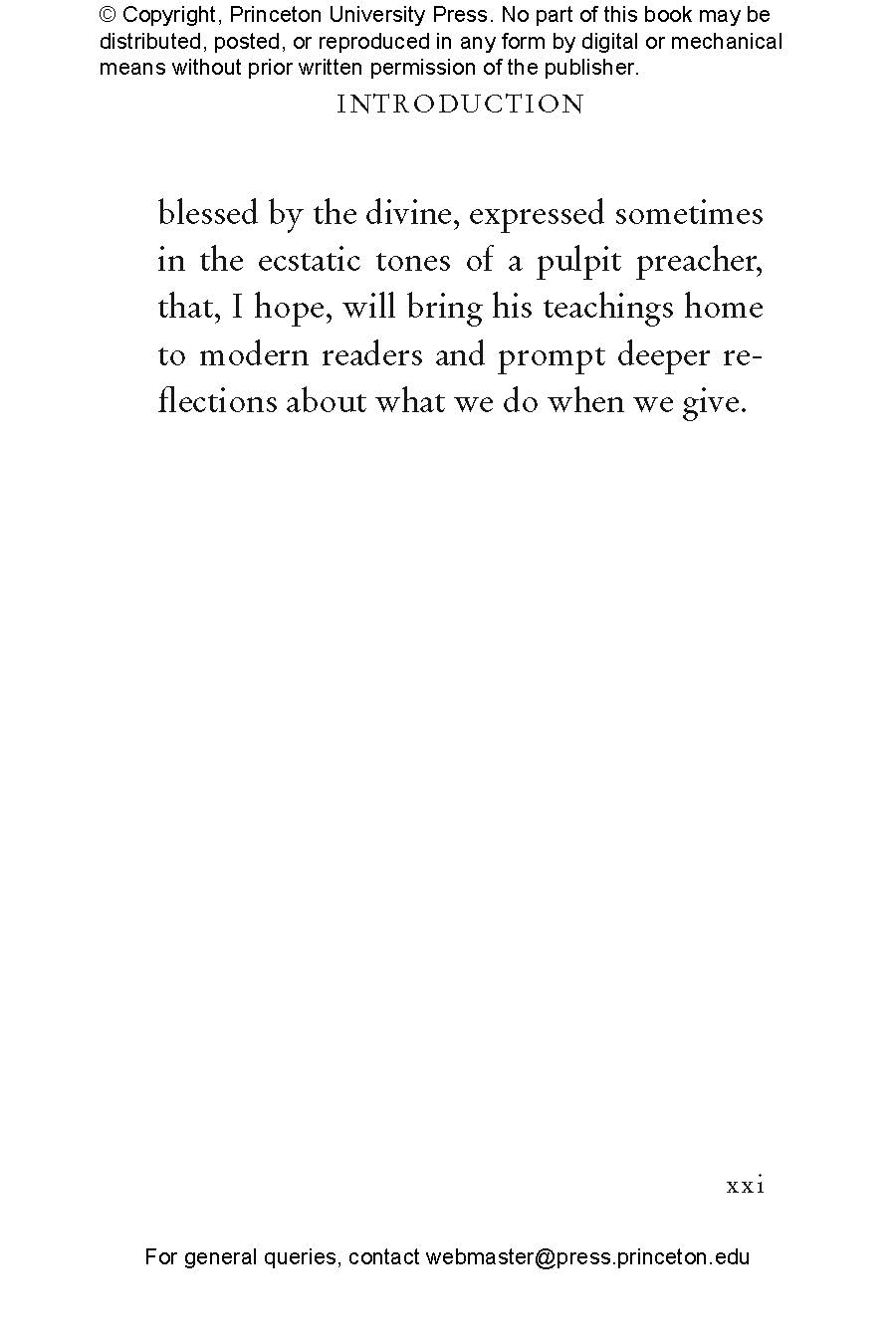To give and receive well may be the most human thing you can do—but it is also the closest you can come to divinity. So argues the great Roman Stoic thinker Seneca (c. 4 BCE–65 CE) in his longest and most searching moral treatise, “On Benefits” (De Beneficiis). James Romm’s splendid new translation of essential selections from this work conveys the heart of Seneca’s argument that generosity and gratitude are among the most important of all virtues.
For Seneca, the impulse to give to others lies at the very foundation of society; without it, we are helpless creatures, worse than wild beasts. But generosity did not arise randomly or by chance. Seneca sees it as part of our desire to emulate the gods, whose creation of the earth and heavens stands as the greatest gift of all. Seneca’s soaring prose captures his wonder at that gift, and expresses a profound sense of gratitude that will inspire today’s readers.
Complete with an enlightening introduction and the original Latin on facing pages, How to Give is a timeless guide to the profound significance of true generosity.
James Romm is the editor and translator of Seneca’s How to Keep Your Cool and How to Die (both Princeton) and the author of Dying Every Day: Seneca at the Court of Nero. He has written for the Wall Street Journal, the New York Review of Books, and the London Review of Books, among other publications. He is the James H. Ottaway Jr. Professor of Classics at Bard College and lives in Barrytown, New York.
"In a helpful running commentary that accompanies his vigorous translation, [James] Romm glosses Seneca to mean that the best gifts are given anonymously and received gratefully. . . . For the stoically inclined, a fine vade mecum come donation time."—Kirkus Reviews
"Engaging. . . . [Seneca] has seldom seemed wiser."—Steven Donoghue, Open Letters
"[Romm] is very helpful in his introduction . . . [and his] short summations show a clear mastery of his material."—Ray Morris, Classics for All
"Thoughtful advice. . . . How to Give is as much about receiving as it is about giving."—John J. Miller, National Review
"This new translation of Seneca the Younger's De Beneficiis has insights for both givers and receivers, confirming that the questions surrounding philanthropy—and how to receive as well as to give graciously—are of enduring importance."—Austin Detwiler, Philanthropy Daily
"Seneca’s ‘On Benefits’ carefully differentiates between the individualism of the market and the foundational ‘fellowship’ fostered by gift giving and good deeds. James Romm’s lucidly translated selection from this classic work is both a valuable addition to the history of gift exchange and a reminder that all human dealings are attended by matters of ethics and belief.”—Lewis Hyde, author of The Gift: How the Creative Spirit Transforms the World
“With intelligent selections that are translated with exceptional grace and lucidity, How to Give presents, for today’s readers, Seneca’s thoughts on an issue of perennial interest: the true nature of generosity and gratitude and the best ways to behave generously and gratefully.”—Robert A. Kaster, professor emeritus, Princeton University
“Seneca’s writings are chock-full of still-useful reflections and advice of universal application. This attractive and accessible translation of key excerpts from his 'On Benefits' makes for a fine book.”—M. D. Usher, University of Vermont
